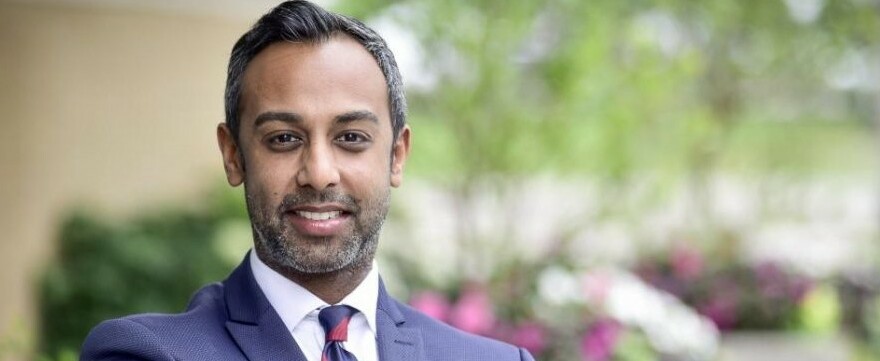Aly-Khan Rajani, the Ambassador of Canada to South Sudan, delivered a stirring address on World Press Freedom Day in Juba on Friday, emphasizing the crucial role of media in advancing democracy in the country.
“Canada’s support to this country is based on our conviction that the South Sudanese people deserve peace, human rights, democracy, and a government that is accountable to them and responsive to their needs,”said Ambassador Lajani.
Rajani’s remarks also underscored Canada’s commitment to supporting democratic values and partnerships in South Sudan, echoing the need for collaboration across sectors for a thriving democratic society.
Rajani acknowledged the significance of World Press Freedom Day, an initiative with roots in Africa, particularly emphasizing its inception during a UNESCO seminar in Namibia in 1991. He underscored the pivotal role played by African journalists and media workers in advocating for press freedom, independence, and pluralism, culminating in the UN General Assembly’s resolution in 1993 to designate May 3 as World Press Freedom Day.
Reflecting on the historical context surrounding the establishment of this day, Rajani noted the winds of change sweeping across Africa during the early 1990s, with many nations embarking on paths toward democratization. Drawing parallels to South Sudan’s ongoing journey, he emphasized the relevance of this year’s theme to the nation’s democratization efforts.
“I want to express my gratitude to the organizers for selecting today’s theme, as it is indeed timely. Additionally, I wish to acknowledge the insightful comments made by the President of the Union of Journalists of South Sudan, Oyet Patrick, regarding the electoral process. He rightly pointed out that elections are a complex process led by the government of South Sudan but necessitate a collaborative effort, as highlighted by the previous speaker,” explained the Ambassador.
He continued, “This underscores the importance of a partnership among various sectors of society – with the government at the forefront, alongside the media and civil society. It is crucial that we all work together in this partnership to uphold the values essential for the advancement of a democratic nation. This includes cherishing freedom of expression, fostering civic and political space, and ensuring that these principles are not only maintained but also expanded each day.”
Speaking on Canada’s support for South Sudan, Ambassador Rajani reiterated the country’s dedication to peace, human rights, and democracy. He underscored Canada’s investment in fostering a government accountable to its people and responsive to their needs. The Ambassador proudly announced Canada’s funding of the event in Juba, emphasizing the nation’s commitment to seeing South Sudan’s democracy flourish.
Rajani also highlighted the partnership between Canadian NGO Journalists for Human Rights (JHR) and a local youth-led organization, Defy Hate Now, as part of Canada’s efforts to combat misinformation and hate speech in South Sudan. Reflecting on past challenges in funding, Rajani expressed pride in reinstating support based on feedback from various stakeholders, including the media, civil society, policymakers, and the security sector.
“I also want to acknowledge the incredibly significant role that women play, not only in democracy as a whole but also in leadership within South Sudanese civil society. Mary Ajith, who leads the JHR country office, and Marina Mody, who heads the Defy Hate Now project, exemplify this. Supporting women’s leadership is a crucial aspect of Canada’s feminist foreign policy and international systems policy. These women were already in positions of leadership; our aim is to amplify their voices and demonstrate the value of equality within our society,” explained Rajani.
He further emphasized, “Both globally and here in South Sudan, the media plays a vital role in nurturing democratic space by keeping the public informed and facilitating communication between leaders and citizens. When credible, fact-based reporting is lacking, it creates a fertile ground for misinformation and disinformation to spread. This impacts everyone, including politicians, the public, and the media themselves. Therefore, we all have a shared interest in promoting an information environment characterized by fact-based reporting.”
“The President of UJOSS, in both his address here and at the launch of the Canada-funded project with JHR, underscored the profound impact of misunderstandings, stating, ‘Too many wars have been started over a misunderstanding,’” reiterated the Ambassador.
Expanding on this, he remarked, “I hope that today’s dialogue, encompassing diverse viewpoints, will propel our broader agenda forward. This discussion presents an opportunity for all participants to contemplate their individual and collective legacies. As leaders or future leaders of South Sudan, what legacy do you aspire to leave behind? What system of governance do you envision participating in? Whether as a voter, journalist, public servant, or member of the public, what investments and decisions can you make now to realize this vision?”
“I leave you with these thoughts to ponder throughout the day, and I want to reaffirm Canada’s steadfast support for media workers worldwide, including here in South Sudan. You are the frontline defenders of freedom and freedom of expression. Your role in shaping the democratic process, particularly in matters like the timing and conduct of elections, cannot be overstated. Each day, through your dedicated work, you contribute to laying the foundation for free, fair, and credible elections, thereby building democracy, serving your communities, and safeguarding human rights in South Sudan,” emphasized Ambassador Rajani.
He concluded by stating, “Today, as we commemorate World Press Freedom Day, let us celebrate the courage and tenacity of the media. I salute each and every one of you. Thank you so much.”




